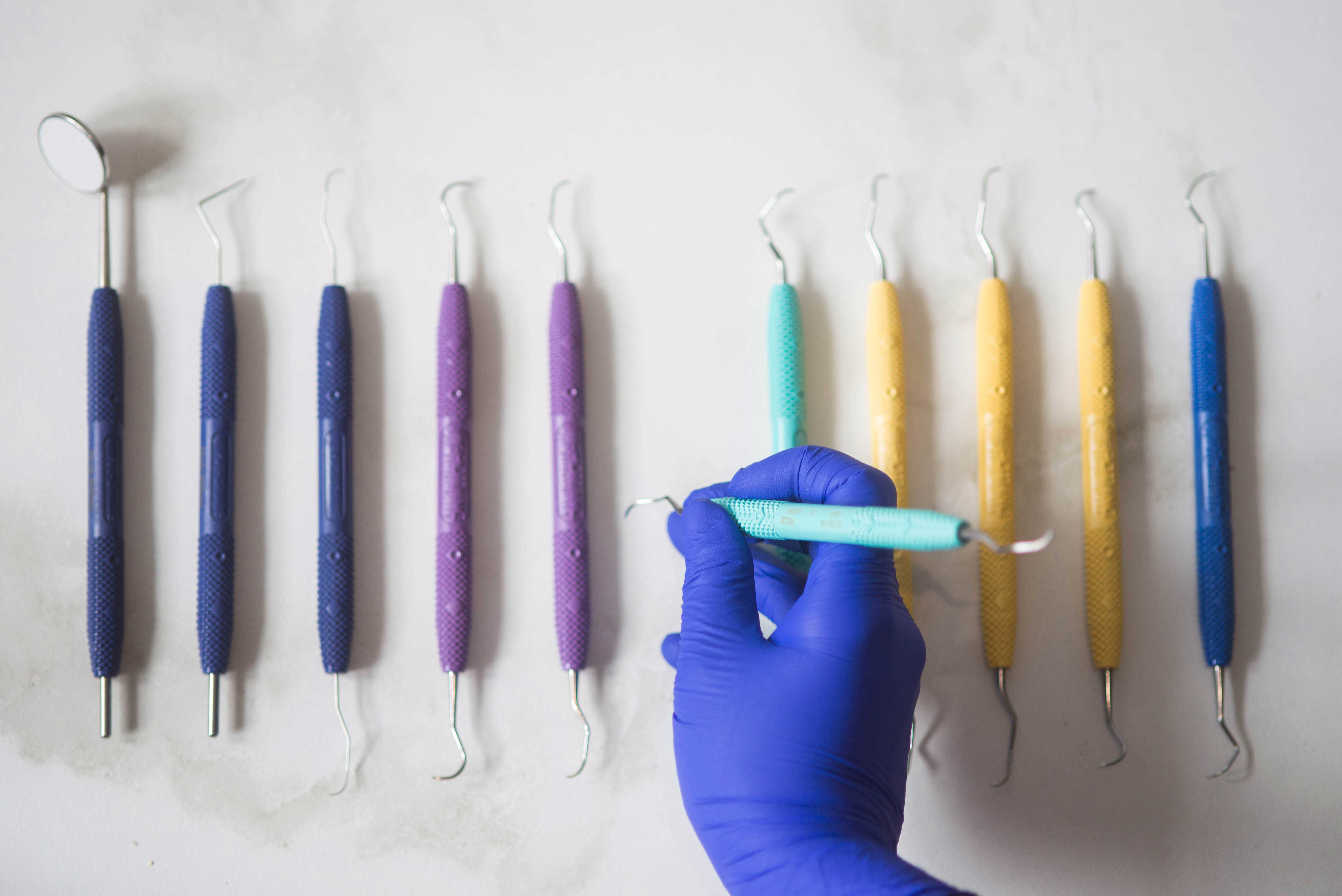Gum Disease
Are you suffering from inflamed or swollen gums? Do your gums start bleeding easily when you brush your teeth? Are you suffering from persistent bad breath despite using mouthwash? All of these are signs of gum disease. If you see any of these symptoms, you must consult your dentist near the Galleria immediately. At URBN Dental in Midtown and Uptown, our Houston Uptown dentists who do gum disease treatment in Houston will thoroughly examine your mouth and treat gum disease in a timely manner so it doesn’t spread further.
What is Gum Disease?
Gum disease is an extremely common disease in which your gums get swollen, sore, or even infected. This disease is extremely common in adults and is almost inevitable in those who don’t go for regular dental cleaning appointments. You can identify the presence of gum disease if you have persistent bad breath despite brushing frequently and using mouthwash or if your gums start bleeding easily. Make a dental visit as soon as you discover any gingivitis symptoms or indicators. Your prospects of correcting the effect of gingivitis and stopping it from developing into periodontitis are better the earlier you seek medical attention.
What are The Stages of Gum Disease?
Gum disease progresses rapidly in two stages — Gingivitis and Periodontitis.

Gingivitis
Gingivitis is the earliest stage of gum disease. During this stage, the tissue around your teeth and gums gets inflamed, often due to poor oral hygiene. This condition can be identified by red and swollen gums that bleed easily when you brush your teeth.
Periodontitis
Periodontitis is the final and most dangerous stage of gum disease. During this stage, the infection or disease spreads and also affects the bone below the gums and the surrounding teeth. According to some research, the bacteria that cause periodontitis can enter your bloodstream via gum tissue and might potentially harm your heart, lungs, and other organs. If you allow this to continue, periodontitis can lead to severe bone loss, which can lead to loss of teeth as well.
How Soon Should I Seek Help in Case of a Dental Emergency?
Unless you are a dental professional yourself, you cannot tell whether a certain delay can result in unacceptable damage or not. Therefore, act without delay. Even a small delay can result in serious, irreversible loss. Broken teeth cannot be grown again. Rush to your nearest dentist who does open for a physical examination, or if that is not possible in a short time, contact one on the telephone to seek advice. Most dentists are usually on call for emergencies. They could be requested to assist patients in a hospital emergency room who have been in a vehicle accident, fallen, or experienced any other form of physical pain.After listening to your description, your dentist who does Houston gum disease treatment near Galleria may advise you to act immediately or give you an appointment.
What Causes Gum Disease?
The primary cause of gum disease is poor oral hygiene. However, oral hygiene here doesn’t just refer to regular brushing and flossing. No matter how thoroughly and religiously you brush and floss your teeth, you can never really get rid of all the stray food particles stuck between your teeth. Eventually, they turn into a sticky coating called plaque, which invites bacterial infection. Over time, the plaque hardens into a substance called tartar, which is impossible to remove with the simple act of brushing and flossing. The only way to completely remove all the stray particles of food, plaque, and tartar is to go for regular dental cleaning appointments. As such, lack of oral hygiene — including dental cleaning visitations — is the primary cause of gum disease.
Gum Disease Symptoms
The following are some of the primary gum disease symptoms.
- Inflamed Gums: Gum disease always starts with inflammation along the gum line. As such, the first warning signs of gingivitis are red or swollen gums that are especially sensitive and prone to bleeding.
- Bad Breath: Plaque and tartar presence can lead to bacterial decay. When these bacteria feast on the plaque, they release toxins with a foul odour. This leads to persistent bad breath, no matter how much you wash your mouth or brush your teeth.
- Receding Gums: If your gum disease advances, the infection may spread to the bones underneath your gums. This causes gums to separate from the teeth and start receding.
- Sensitive Teeth: Once your gums recede considerably, the sensitive part of your teeth — dentin — gets exposed. As such, cold water sends tingles through your body.
How To Treat Gum Disease?
Gum disease can be treated with a dental deep cleaning procedure. This is a procedure in which the dental hygienist removes all of the plaque and tartar from your teeth using a special instrument. Following that, if you have periodontitis, another procedure helps bridge the gap between receding gums and the teeth. Gum Disease Treatment advances in the following steps.

Consult Your Doctor For Gum Disease Treatment
The first step for gum disease treatment is to search for a dentist near me and consult your doctor when you identify any gum disease symptoms. The dentist near Galleria will thoroughly examine your mouth and gums to determine the presence of gum disease. Sometimes, the doctor will also run an x-ray to check your teeth and jawbone. This will allow them to create a treatment plan for you.
Root Planing
During this procedure, the dental hygienist will smoothen the roots of the teeth so that it can be reattached to receding gums. This may cause some slight discomfort but it will help stave off the periodontal damage.
Scaling
The dental hygienist will use a device called scalar to scrape off every trace of plaque and tartar from your teeth and gums. If the tartar has advanced to the gum line, the dental hygienist will also check your gums thoroughly.
Aftercare
After the teeth and gums have been reconnected, the dental hygienist will carry out some aftercare procedures:
- He or she will examine your mouth once again to remove all traces of plaque and tartar.
- You’ll have to brush your teeth with an electric toothbrush and an abrasive toothpaste that thoroughly scrubs the surface of your teeth.
- Next, the dental hygienist will carefully floss your teeth.
- You’ll have to rinse your mouth with a fluoride solution to get rid of all the bacteria.
- A foamy fluoride gel will be scrubbed over your teeth and you’ll have to wear a mouthpiece for a minute so that the gel can settle. This will prevent bacterial decay for several months to come.
How to Prevent Gum Disease?
After the gum disease treatment, you only need to follow a few oral hygiene habits to prevent the onset of gum disease again:
- Brush your teeth twice a day.
- Floss your teeth after every meal and be sure to get to the extremities of your teeth.
- Rinse your mouth using a fluoride solution to get rid of bacterial decay.
- Maintain all of your dental cleaning appointments and visit the dentist regularly.




